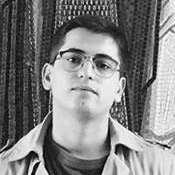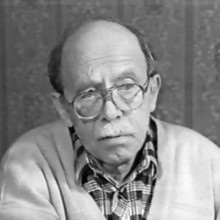[EN] До 15 июля принимаются заявки на участие в конференции «Современность, социализм и изобразительные искусства»
6-11 October 2013, Berlin to Gorzów.
 1 212
1 212 
© Evan Leeson
CFP: “Modernity, Socialism and the Visual Arts” – A six-day ship conference
Date: 6-11 October 2013
Venue: conference ship from Berlin via Beeskow, Eisenhüttenstadt and Gorzów back to Berlin
Organization: Kunstarchiv Beeskow and Utrecht University in collaboration with Marlene Heidel, Claudia Jansen, Ursula Lücke and Joes Segal
The conference is made possible by the generous support of: Kulturförderung Landkreis Oder-Spree/Burg Beeskow; Sparkasse Oder-Spree; Brandenburgische Landeszentrale für politische Bildung, Potsdam; Raiffeisen-Volksbank Oder-Spree eG; Akademie der Künste, Berlin; Universität Utrecht; and Forum Kunstarchiv Beeskow e.V.
Public debates on Cold-War cultural heritage since the 1990s tend to address the pre-1989 European art world in terms of a clash between Western modernism and Soviet-style socialist realism. However, behind these general concepts one encounters a wide variety of artistic forms and ideas, which more often than not transcend oversimplified politicized distinctions. Especially since the late 1960s, West-European art explored the borders between “art” and “life”, opening itself to various forms of social and political engagement, whereas socialist realism became a highly contested concept in large parts of Eastern Europe, leading many artists away from both realist and socialist assumptions. This rather one-dimensional representations of Cold-War cultural history after the collapse of state socialism provokes a series of fundamental questions. What exactly do we mean by modernism and socialist realism? How do both concepts relate to modernity, and is it possible to speak about socialist modernity? What aspects of Cold War cultural history do we neglect when exclusively focusing on its bipolar character? What concepts would be needed to interpret the pre-1989 European art world in non-exclusive, non-teleological ways? And what could be the role of (material) archives and museums in such a reinterpretation?
These are some of the basic questions that will be addressed at a six-day conference starting at the Akademie der Künste, Berlin and on board an archival ship, travelling from Berlin to Gorzów along a number of sites, archives and institutions related to Cold War culture and art history. Apart from offering a unique opportunity for in-depth discussions, the ship conference symbolizes the crossing of both national, disciplinary and temporal borders; it aims at connecting parallel and divergent European histories, addressing (art) historical, philosophical and interdisciplinary issues both on a conceptual and on a practical level, and relating our interpretation of the past to are present concerns and future ideals. It will be organized along seven panels.
Panel I: Concepts and Debates
This introductory panel will explore the theoretical, methodological and historiographical issues at stake. How do we define modernism and socialist realism? How do both concepts relate to modernity? What are the cultural implications of the end of the Cold War for both East and West? How do we cope with Cold-War cultural heritage, what does it contribute to our understanding of present-day post-socialist art and culture?
Panel II: Utopias and Artistic Practices
Both the socialist East and the liberal-democratic West created their own utopian fantasies, but it would be too simple to neatly divide these respective European dream-worlds into the bipolar world-order of the Cold War, considering that these utopian models were often aimed at transcending borders and dividing lines. This panel will look for parallels and differences between official and non-official utopian models in the art worlds of Eastern and Western Europe, and the specific ways they were put into artistic practice. Of specific interest are parallel developments and cultural exchange across the Iron Curtain.
Panel III: Architecture and Urban Planning
Political and social visions found their conceptual and material realization on a more collective level in architecture and city planning. Aim of this panel is to analyze the parallels and differences between plans, blueprints, buildings and urban quarters in East and West, with special regard to representation (power, ideology, social relations) on the one hand and modernity (notions of technological progress, modernist aesthetics, consumer-orientation) on the other.
Panel IV: Archives and Modernity
Archives function as storehouses of collective memory. Therefore, the way they are structured is of primary importance not only to our interpretation of the past but also to our understanding of the present. Museums, libraries and archival institutions, far from being “objective”, play an important role in the politics of memory. Based on art in socialism as case study, this panel investigates the specific ways in which these institutions help us to make sense of the past, and how their composition and accessibility may favor specific interpretations. Moreover, it takes a look at the future: Which forms and concepts for archives, including academic and artistic approaches, are conceivable that enable a varied and multidimensional access to the Cold War past?
Panel V: Gender Roles
The socialist East and the liberal-democratic West produced certain “role models” or gender roles. Which artistic representations of men and women were connected with the dream-worlds of East and West? How did these representations relate to social reality? What role did they play in challenging both political systems? How were gender roles determined and imposed in East and West, how were they undermined? What was the role of art in transgressing these ideologically defined gender roles, and how did they effectively change over time?
Panel VI: Post-Cold War Art Debates
Especially in the German art debates of the 1990s and beyond, two different views of the Cold-War art world struggled for domination: schematically speaking the view that all art produced under socialism was to be interpreted and rejected as cultural expression of an obsolete political ideology; and the view according to which socialist art had created its own more or less independent niche by producing autonomous works or appropriating and re-employing visual traditions to new ends. The vehemence of these debates shows that this was not an academic dispute about the interpretation of a closed past but a discussion addressing central aspects of our collective identity. This panel will discuss the complex relations between art debates and the politics of dealing with the past. In comparative perspective, the art debates of former East- and former West-European countries will be confronted with the German example.
Panel VII: Art after Communism, East and West
Finally, it remains to be asked how the end of the Cold War affected the art world in both Eastern and Western Europe, considering that artistic identities could no longer be connected to a bipolar ideological division. Does it still make sense to distinguish between a West-European and an East-European art tradition, or were these traditions already obsolete well before the official collapse of European state socialism? What are the defining characteristics of the post-Cold War art world, according to which dividing lines do new artistic identities take shape? And how do they, in whatever form, relate to the recent past?
The conference will start at the Akademie der Künste, Berlin, and continue aboard our conference ship and at stops in Beeskow, Eisenhüttenstadt, Frankfurt/Oder and Gorzów. The ship offers room for 24 conference participants. Conference fee is € 50,- for six days, including breakfast, lunch and dinner. Participants will sleep on board the ship in shared cabins (two persons) and should take part during the whole six-day conference.
A selection of the conference papers will be published in a special issue of the peer-reviewed, open-access journal International Journal for History, Culture and Modernity (www.history-culture-modernity.org).
Researchers, artists and curators are invited to send proposals for a 20 minute presentation to Joes Segal, [email protected], before 15 July 2013. The proposal should include title, abstract (maximum 250 words), details of the presenter’s institutional affiliation and a short CV. Please consider that presentations will be in English and aboard the moving conference ship in daylight.




Комментарии